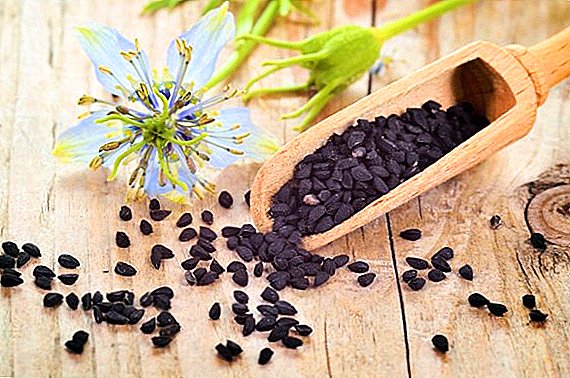 When growing turkeys, it is important to make the right diet for them, starting from an early age, because it is then that the taste and nutritional values of meat are formed. Turkeys are omnivores, so feeding them does not cause any difficulties. However, it is necessary to adhere to certain rules, so as not to overfeed the bird and at the same time provide it with a complete vitamin and mineral set. Only in this case it will be possible to get healthy, dietary, tasty meat. The article will look at how to make a diet for poultry of different ages, what to choose feed and how to cook them yourself.
When growing turkeys, it is important to make the right diet for them, starting from an early age, because it is then that the taste and nutritional values of meat are formed. Turkeys are omnivores, so feeding them does not cause any difficulties. However, it is necessary to adhere to certain rules, so as not to overfeed the bird and at the same time provide it with a complete vitamin and mineral set. Only in this case it will be possible to get healthy, dietary, tasty meat. The article will look at how to make a diet for poultry of different ages, what to choose feed and how to cook them yourself.
What feed to choose for turkeys
When picking food, you can go easy and proven way - choose ready-made combined feed. They have tangible benefits: they save time on feed preparation, they have already calculated the optimal amount of nutrients for poultry of different ages, as well as the daily dosage.
If you plan to breed turkeys, you need to take care of the comfort of birds. Learn how to build a turkey-hen, as well as read about how to make roosts for turkeys with your own hands.
For novice poultry farmers such an option can be very convenient, although not financially the most profitable.  Depending on age, manufacturers produce feed of several series:
Depending on age, manufacturers produce feed of several series:
- From birth to 5 weeks. The first feed in chicks is called "Starter", usually produced in the form of pellets or cereals. Feed for this age group can be found in Purina: "Starter-1" and "Starter-2" (for turkeys). Baby food is also available under the name "PC 11-0", "PC 11-1".
- From 5 to 13 weeks. At this age, the ingredients of the feed are the same as for small poults, but their ratio changes: the amount of protein decreases, and of vitamins and carbohydrates - increases. TM Purina also has feeds for this period under the names: "For young egg birds", "Grower for turkey". Feed for this age category is also called "PC 11-2."

- At the age of 13-17 weeks. Feed "PC 12" for turkeys perfectly satisfy the needs of birds in nutrients at this age. TM Purina for this age has a "Turkey Finisher".

- For adult birds. For adult turkeys, you can select "PC 13" (from week 18) and "PC 10" (from week 31).

The diet of turkeys at home
If the option of ready-made mixtures is financially unacceptable for you, you can prepare food yourself. It is only important to understand which nutrients are necessary for poultry and which products are their sources:
- The basis of the diet is leguminous crops. They almost completely cover the bird's need for proteins of plant origin and are responsible for active growth and weight gain.
- A source of amino acids are vegetable meal and cake.
- Fish, meat and meat and bone meal is a necessary source of animal protein, calcium and phosphorus. Thanks to these elements, the bird forms a skeleton, gains weight, supports egg productivity.
- Fresh juicy greens and roots provide feathery with vitamins, fiber and trace elements.
- In moderate quantities turkeys need fats, sources of which are walnuts, acorns, vegetable oils. With the introduction of these products in the diet, feathered meat becomes tender and juicy.
- In a small number of birds need yeast, germinated grain. These products cover the need of birds for vitamins A, groups B, E, N.
- In the winter months to obtain vitamin C, hay, straw, pine needles and spruce are included in the diet of birds.

Consumption and feed rate for turkeys per day
With age, the frequency of feeding decreases, but the portion size increases. With the help of the table below you can find out the average amount of feed per bird.
| Age | Individual weight | The amount of feed per day per head |
| Daily chicks | 70 g | 10-20 g |
| 2 weeks | 350-400 g | 70 g |
| 1 month | 800 g | 160 g |
| 1.5 months | 1.7 kg | 180 g |
| 2 months | 2.4 kg | 190 g |
| 3 months | 5 kg | 230 g |
| 4 months | 7 kg | 210g |
| 6 months | 10 kg | 320 g |
One of the conditions for the good development and growth of birds is the constant availability of water in their access zone. Read about how to make their own drinkers for turkeys.
How to make feed for turkeys do it yourself
Let's take a look at how to make balanced feed for small poults, young and adult birds. 
For a week of age
In the first week of life, the chicks require special attention to the diet. Immediately after birth, they lack the swallowing reflex, their beaks are weak and unsuitable for solid feeds.
- From birth to day you need to give the traditional for all newborn domestic chicks food: hard-boiled, chopped egg with greens. For kids it is better to choose such plants: onion feathers, alfalfa, clover, dandelion leaves, plantain and nettles. Be sure to give boiled water with sugar (1 tsp. Per 1 liter). Some poultry farmers from the first day add boiled porridge. Egg stays in the diet until the week of age. Feeding - every three hours.
- For 2-3 days, you can add lean shredded cottage cheese, prepare a mixture based on millet, wheat sour and greens. As a dressing, you can use meat or fish broth, whey, yogurt. Separately, you can pour dry crushed barley.
- For 4-7 days you can prepare wet mash on the basis of fresh milk, add wheat or corn flour, bran. It is recommended to pour sour milk into a separate container.
- 60 grams of wheat flour;
- 10 grams of corn oil;
- 10 g of chopped greens;
- 10 g chopped boiled eggs;
- 8 g low-fat cottage cheese;
- 2 g of crushed shell rock.
Poultry farmers should be familiar with the rules of feeding poults, and in particular the daily poults in the home.
For young
After a week from birth, babies are already strong and active, they eat with appetite and look forward to the next feeding. The number of meals is reduced by 2, so by the first month of life the bird is fed 5-6 times a day, but the volume of servings increases. At this time, babies are actively gaining weight and developing. For feeding, you can prepare a mixture according to this recipe:
- 400 g of crushed corn;
- 300 g of soybean and sunflower meal (3: 2);
- 50 g yeast;
- 100 g of fish meal;
- 70 g of meat and bone meal;
- 20 grams of herbal flour;
- 50 grams of milk powder;
- 10 g of vegetable oil;
- 1 tbsp. l shell rock.
 Such a mixture of chicks can be fed up to 2 months of age. It is useful to add chopped root vegetables to the mash: beets, carrots, as well as cabbage and pumpkin. From 2 months of age, it is possible to knead the mixture not on milk, but on ordinary water.
Such a mixture of chicks can be fed up to 2 months of age. It is useful to add chopped root vegetables to the mash: beets, carrots, as well as cabbage and pumpkin. From 2 months of age, it is possible to knead the mixture not on milk, but on ordinary water.It will also be useful for you to find out at what age turkeys begin to fly, how to lay eggs under the turkey, and also read about the benefits and harms of the turkey eggs.
For adults
Adults need 4-time feeding. In the morning and evening, they give dry grain, during the day - wet mash. The recipe of the mixture for adult birds:
- 680 g of cereal mixture;
- 130 meal of soybean and sunflower (1: 1);
- 40 g of herbal flour;
- 40 g fish meal;
- 40 g yeast;
- 30 g of chalk;
- 30 grams of limestone;
- 10 g of salt.

To maintain the productivity of layers, it is better to prepare the mixture separately according to this recipe:
- 150 grams of corn and wheat grain mixture;
- 120 g boiled potatoes;
- 50 grams of corn silage;
- 16 g of chalk;
- 10 g of meat and bone meal;
- 7 g fish meal;
- 10 g yeast:
- 1 g of fat;
- 0.5 g of salt;
- 2 g of premixes.

Common mistakes when feeding turkeys
Out of ignorance, poultry farmers may make several common mistakes when feeding:
- Overfeeding. As a result of overfeeding in birds, obesity is rapidly occurring, which leads to poor health, reduced egg quality or loss of reproductive function, rapid bird death. Meat of birds with excess weight loses dietary and nutritional value.
- Billet mash for the future. Wet mixes must be fresh, so it does not make sense to prepare them in advance. The mixes sour very quickly and begin to ferment, feeding them to the bird can lead to eating disorders and poisoning.
- Use of dirty feeders. Before filling a portion of food, feeders need to be cleaned from the remnants of past food and rinsed.
- Non-compliance with the frequency and mode of feeding. For the normal weight gain of birds, you need to feed exactly the number of times that corresponds to age. Meals should be taken at the same time every day.
 Compliance with all the rules of feeding may seem difficult at first, but such work is soon justified by a large number of homemade, wholesome, dietary, hypoallergenic meat.
Compliance with all the rules of feeding may seem difficult at first, but such work is soon justified by a large number of homemade, wholesome, dietary, hypoallergenic meat.Read the rules of keeping turkeys in the winter at home.
If you are not confident in your abilities or want to save time, you can choose ready-made feed for any age. Food can also be cooked by yourself, then you will always be sure of its high quality.















